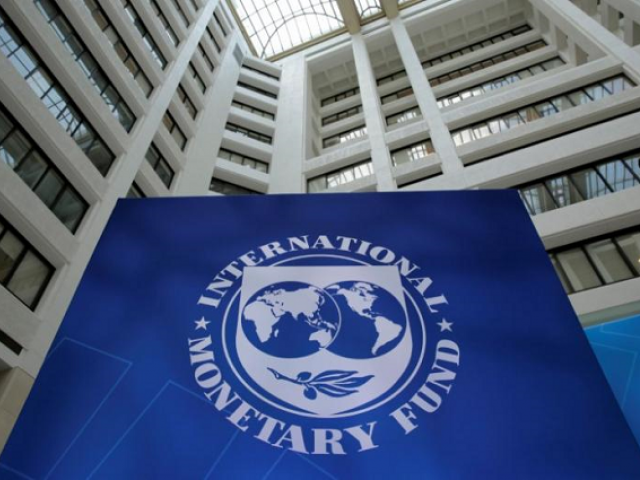IMF asks Pakistan to maintain development spending
This may limit government’s options for achieving primary fiscal balance

PHOTO: FILE
Head of IMF Mission to Pakistan Ernesto Rigo expressed these views during a meeting with Planning, Development and Reform Secretary Zafar Hasan, according to the planning ministry officials.
Rigo is leading a staff-level mission to Pakistan to finalise the Extended Fund Facility to help Pakistan steer out of the economic crisis.
It is the second staff-level visit of the IMF to conclude the deal for a three-year bailout package totalling around $6.5 billion. The fund is in the town for the last five days and there is still no convergence on the macroeconomic framework, according to sources in the Ministry of Finance. The projections made by the finance ministry and the IMF team on every main economic indicator varied, they added.
Pakistan's debt worth $27b to mature in two years: IMF
Both the sides discussed the Public Sector Development Programme (PSDP), China-Pakistan Economic Corridor (CPEC) and other aspects of planning including macroeconomic policies, according to an official statement issued by the ministry after the meeting which was also attended by Chief Macroeconomics Zafarul Hassan.
During the meeting, the planning secretary pointed to the problems the federal government was facing due to the squeezing fiscal space for development spending, said the officials. There are concerns that the development spending, which has already been on the wane over the past two years, may further decrease due to the IMF programme.
Rigo was said to have told the planning secretary that the IMF was not in favour of reducing the development spending. Rather, he said the IMF would like to see the development spending “protected” at this year’s level in terms of total size of the economy, said the officials.
For fiscal year 2018-19, the federal PSDP was equal to 1.8% of gross domestic product (GDP) whereas the four provinces cumulatively allocated the development budget equal to 2% of GDP. The total development allocation by the Centre and the four provinces is equal to 3.8% of GDP.
However, the Ministry of Finance has given an indicative development budget ceiling of Rs675 billion to the planning ministry for the next fiscal year, which was equal to only 1.5% of GDP and lower than the current fiscal year. There is another critical condition of the IMF that seeks primary fiscal balance next year which means the government’s total expenditure, minus interest payments, should be met from its revenues.
It is expected that this year again there will be primary deficit of around 2% of GDP. To turn it into surplus, the government either has to cut its development budget, defence budget or massively scale up tax revenues.
The IMF also inquired about the possibility of financing development projects on public-private partnership mode.
The two sides exchanged views on growth targets as well as policy adjustments to keep the growth momentum, according to the planning ministry statement. The planning secretary gave an overview of the planning process and CPEC programme.
The IMF asked about future inflows regarding CPEC, said the officials. The planning ministry informed the lender that CPEC’s focus in future would be on socio-economic sectors.
The two sides shared measures to create growth through both external and internal balance. The role of Pakistan Bureau of Statistics was also discussed in the meeting, stated the planning ministry.
Meanwhile, talks between Pakistan and the IMF continued during the fifth day. Adviser to Prime Minister on Finance Dr Hafeez Shaikh claimed on Friday that things were moving on right direction. But the sources said that both the sides were poles apart in their macroeconomic framework projections.
IMF puts country’s growth rate at 2.5%
The IMF delegation also raised the issue of different sets of macroeconomic projections by various departments of the government. The IMF head urged the planning secretary that there should be consistency in economic statistics presented by the State Bank of Pakistan (SBP), Pakistan Bureau of Statistics and Ministry of Planning and Development, the sources said.
Negotiations with the IMF were moving in a positive direction and would help in providing a platform for macroeconomic development in the country, said Dr Abdul Hafeez Shaikh on Friday, while addressing a public gathering.
Shaikh said that the agreement with IMF will send a positive signal to other countries and international financial institutions about Pakistan’s commitment to fiscal discipline. He said that the measures taken by the government resulted in the reduction of imports and increase in exports and remittances.
Published in The Express Tribune, May 4th, 2019.
Like Business on Facebook, follow @TribuneBiz on Twitter to stay informed and join in the conversation.



















COMMENTS
Comments are moderated and generally will be posted if they are on-topic and not abusive.
For more information, please see our Comments FAQ